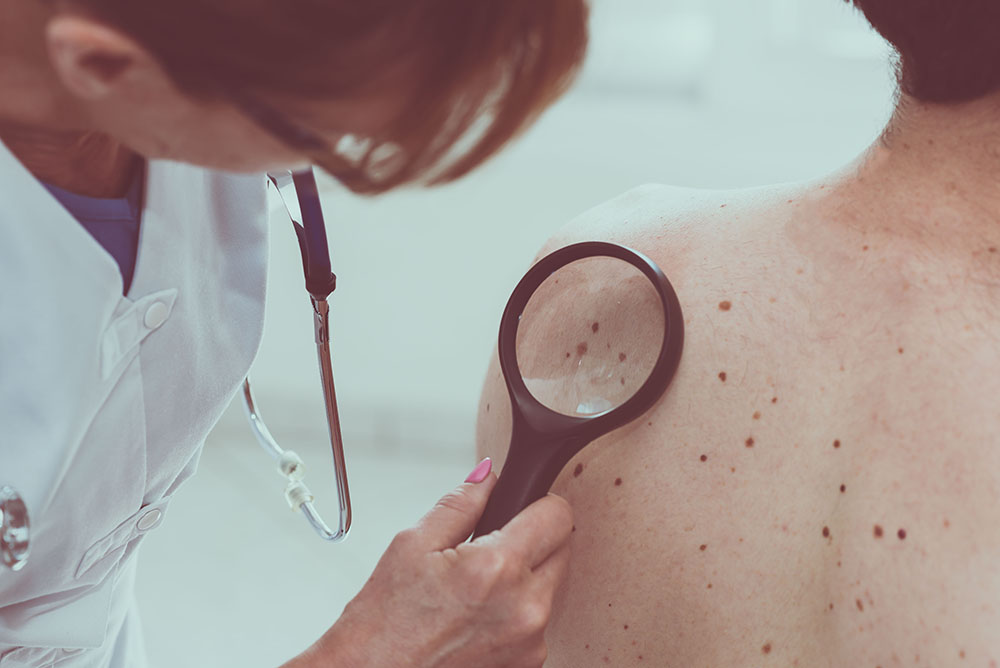Melanoma Skin Cancer – May Cancer Awareness
Skin Cancer is the most common cancer in the United States with over 5 million cases diagnosed each year. Fortunately for most, skin cancer is also one of the most preventable forms of cancer. It is estimated that 90% of non-melanoma skin cancers and 85% of melanoma occur due to over exposure to ultraviolet radiation from the sun. Melanoma is the deadliest form of skin cancer.
Melanoma is a tumor of melanin-forming cells. Melanoma occurs when the pigment-producing cells that give color to the skin become cancerous. Melanomas can occur anywhere on the body. Symptoms may include a new, unusual growth or a change in an existing mole.
The ABCDE method may help you determine whether an abnormal skin growth may be melanoma:
• Asymmetry: The mole has an irregular shape.
• Border: The edge is not smooth, but irregular or notched.
• Color: The mole has uneven shading or dark spots.
• Diameter: The spot is larger than the size of a pencil eraser.
• Evolving or Elevation: The spot is changing in size, shape or texture.
Skin cancer is a disease that is challenging to accurately diagnose and stage. In order to accurately diagnose skin cancer tests, need to be done. First a doctor will perform a thorough check of skin for moles, sports or bumps that appear to be abnormal. The next step is a skin biopsy, which involves removing the abnormal tissues. A pathologist will take a closer look under a microscope to diagnose.
While surgery is the primary treatment option for melanoma there are other options that may include; therapy, chemotherapy, immunotherapy or targeted therapy, either alone or in combination.
It is suggested that wearing a sunscreen with an SPF of 15 or higher is the first line of defense. However, there are other ways of prevention such as:
• Seeking shade while outside between the peak hours of 10am and 4pm
• Avoid tanning outside and using tanning beds
• Exam your skin at least once a month
• Visit a dermatologist at least once a year.
If you have been diagnosed with skin cancer or melanoma, or are looking for a second opinion about your treatment, please contact NY Cancer at (855) 528-7322 or visit our website at www.nycancer.com.


